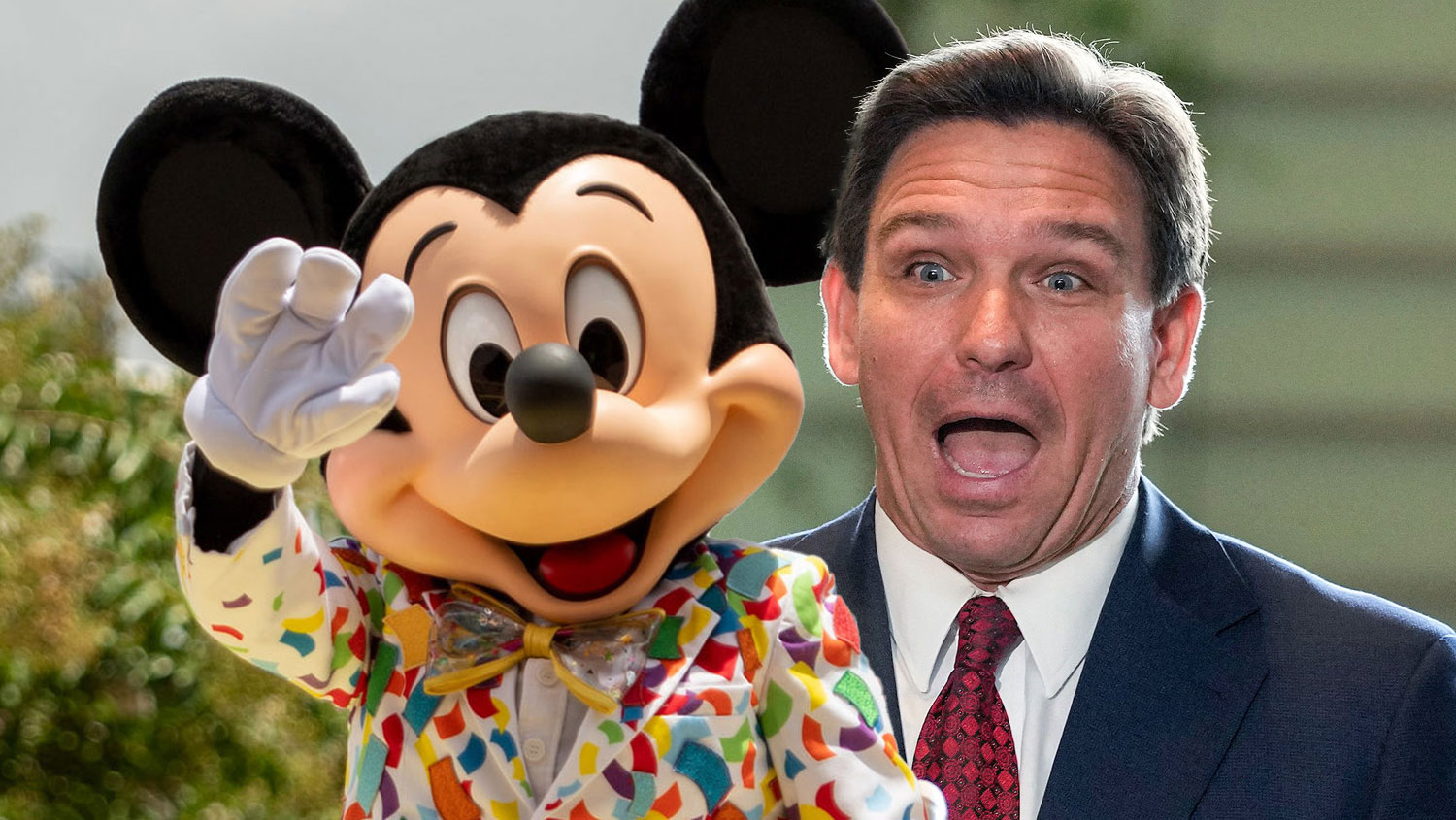Disney criticizes Florida Governor Ron DeSantis’ effort to withdraw from a legal dispute: “Avoid accountability”
Ron DeSantis, the governor of Florida and a candidate for president, recently asked Disney for protection from their legal dispute, but the media behemoth denied his request on Wednesday, accusing him of avoiding “responsibility for his actions.”
It is the most recent shot in a legal conflict that has been going on since April when the governor was sued by the world’s largest theme park company in the Northern District of Florida. The larger conflict started the year before when Disney stood out against the Parental Rights in Education Act, which limits instruction on sexual orientation or gender identity in schools and has been called “Don’t Say Gay” by detractors.
“The Governor seeks to evade responsibility for his actions on a narrower ground, asserting that a governor cannot be held officially liable for implementing, administering, and enforcing state laws that punish residents for political statements violating a state-prescribed speech code,” company attorneys stated in a legal document filed on Wednesday.
 Disney claims that DeSantis and his Republican legislative allies’ responses
Disney claims that DeSantis and his Republican legislative allies’ responses
including the governor’s takeover of the business’s special taxing district, formerly known as the Reedy Creek Improvement District, was retaliatory and a violation of its right to free expression.
Even outside of the courts, the effects of the takeover are still far from resolved since the Central Florida Tourism Oversight District was renamed.
The district’s new, governor-appointed board said on Wednesday that it is considering reducing $8 million used to pay off-duty law enforcement personnel who solely police Disney properties due to litigation costs associated with the Disney issue and other start-up expenditures. Martin Garcia, the chairman, described it as “wasteful spending.”
The board is named in the lawsuit, along with interim Secretary Meredith Ivey of the Department of Economic Opportunity. It has brought a claim of its own in state court against Disney.
 Disney lawsuit has ignited a year-long conflict.
Disney lawsuit has ignited a year-long conflict.
Since the “Don’t Say Gay” bill’s introduction last year, it has sparked widespread debate, and more than 150 large corporations have signed a Human Rights Campaign letter “vocally opposing” the anti-LGBTQ legislation.
Following suit, the Walt Disney Company publicly criticized the law after its workers staged walkouts. Former CEO Bob Chapek of the entertainment behemoth said that the corporation had stopped making political contributions in Florida and was attempting to have the legislation changed.
In a fundraising email, DeSantis said, “If Disney wants to pick a fight, they chose the wrong guy.”
The conflict intensified in April when the business sued the governor for abusing his power to deny it the right to self-govern its Orlando theme parks. Disney further asserted that the governor was taking action against it in retaliation for its opposition to the “Don’t Say Gay” statute.
DeSantis’ lawyers asked a federal judge for immunity from the case last month in order to dismiss the complaint and exempt him from future duty, responsibility, or punishment.
 Disney and DeSantis are still at odds
Disney and DeSantis are still at odds
DeSantis has frequently linked the legislative onslaught on Disney with what he refers to as their “woke” criticism of his landmark parents’ rights law in interviews, publications, and speeches. However, at other times and in his legal defenses, he claimed that the same initiatives were aimed at promoting justice and putting Disney on “a level playing field with every other business in Florida.”
Disney asserts that in addition to breaching the First Amendment, the defendants also violated the Constitution by breaking their agreement with the company and stealing its property without paying fair compensation. Disney claims that by carrying out this action without a “legitimate state interest,” they are breaching the due process requirement of the 14th Amendment.
Attorneys for DeSantis label everything as “meritless.”
DeSantis’ attorneys believe the steps were not taken in retribution in a recent petition asking the court to dismiss the case or, “at minimum,” dismiss the charges made against the governor. In contrast, they claim that those moves were taken to implement “overdue” reform on a unique taxing district that gave the firm “unprecedented power to govern itself.” They referred to the case as a “last-ditch power grab” from which the governor benefits from immunity.
 Disney, though, rejects that
Disney, though, rejects that
“This case presents the fundamental question of whether the Governor and the State can escape accountability for their open defiance of our Nation’s most cherished liberties,” the attorneys for the plaintiffs stated. The move asks for dismissal on the grounds of Article III standing, sovereign immunity, and legislative immunity, however, such standards do not apply in this case.



